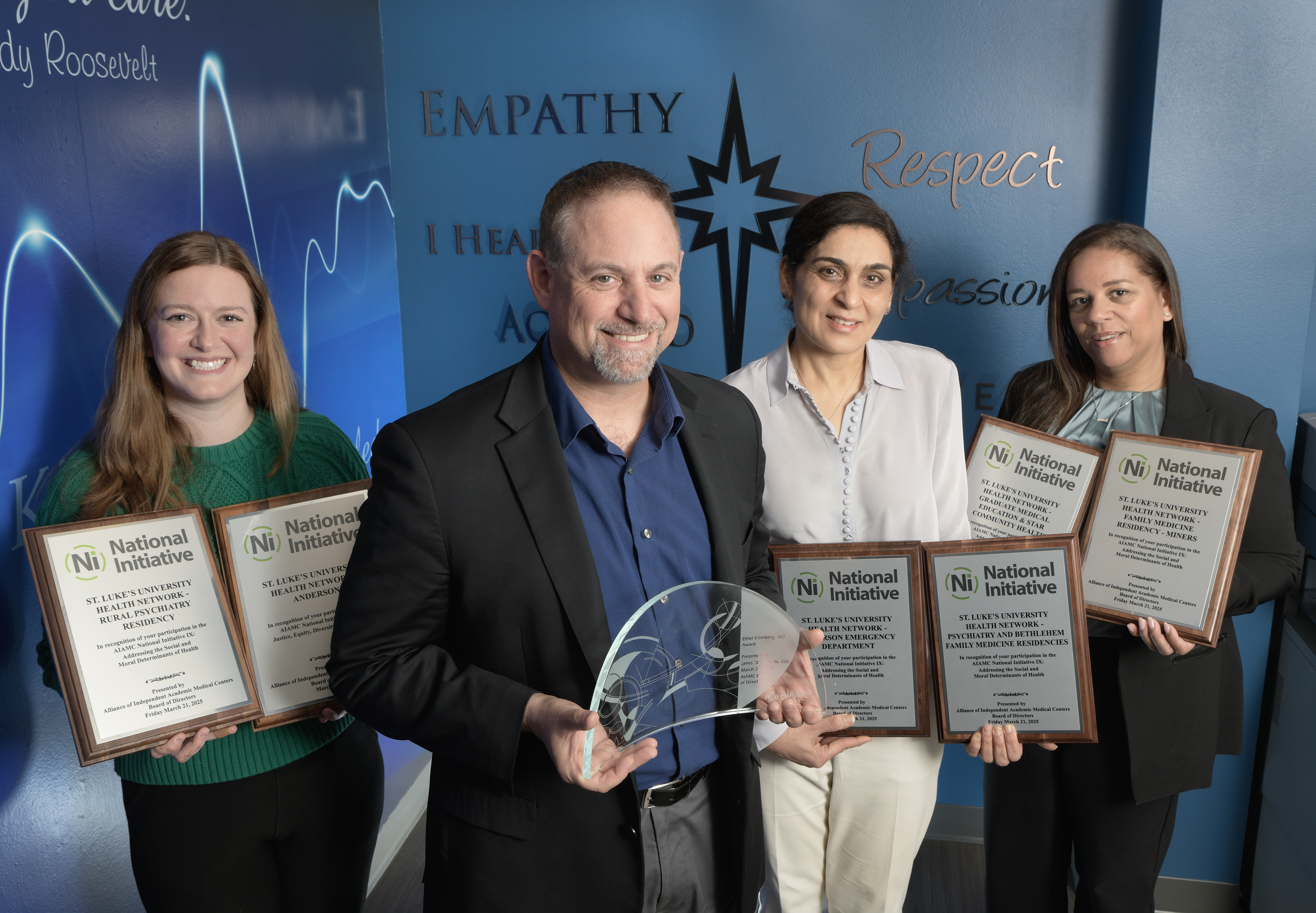Grant Helps Miners Campus and Partners Address Psychostimulant Epidemic
July 29, 2022
To address the alarming spike of methamphetamine, amphetamine and cocaine misuse in counties in its service area, St. Luke’s Miners Campus and the Network’s Community Health team have convened a consortium of partners and began to implement a $500,000 federal grant the hospital received recently. Substance use disorder is a need identified through the Network’s Community Health Needs Assessment over the past few years.
Collaborating with its local public health, behavioral health, education, government and social service partners, the consortium is developing a plan focusing on the prevention, treatment and recovery from these highly addictive “psychostimulants,” which are now more pervasive in Carbon, Schuylkill and Monroe counties than heroin and other opioids.
The overuse caused by these easily obtained and illegal drugs in the rural counties will require a multi-pronged response similar to existing substance use disorder initiatives, says Kerri Quick, MS, project director for the grant and Community Health Liaison Manager with St. Luke’s.
“Together, we will adapt the activities and interventions that were successful in addressing the opioid epidemic in this area,” she says. “While the effects of these substances may differ, we have seen that they both threaten the health and wellbeing of our residents.”
The three-year, “Reducing Psychostimulant Use in Schuylkill/Carbon County” rural HRSA grant became effective July 1. It follows on the heels of the network’s first federal substance use disorders grant secured in 2018, which targeted opioids and included the distribution of Naloxone in the community to reverse overdoses from heroin and fentanyl.
“St. Luke’s remains steadfast in our commitment to helping provide our neighbors with a healthy environment in which to work, learn, grow and enjoy their lives,” says Wendy Lazo, president of St. Luke’s Miners. “Addressing this serious public health threat will help to strengthen our community.”
Jamie Drake, Executive Director of Drug and Alcohol Services for Carbon, Monroe and Pike counties, explains that psychostimulant use, which is rising dramatically in Carbon County, causes different effects than opioids and thus requires a modified approach to addressing the problem.
“Habitual methamphetamine users don’t eat or sleep for days, and often become delusional from prolonged use, presenting a different set of challenges for those using or wanting to kick the habit,” Drake says. “And, while overdose deaths from psychostimulants aren’t common like that from opioids, the methamphetamines these days are frequently laced with fentanyl, which makes use and withdrawal more difficult and can sometimes have fatal consequences.”
According to Rosemarie Lister, St. Luke’s Senior Network Director of Community Health, “To meet the needs of the communities we serve, the partners have begun convening established teams, revising strategies and altering programs to reduce this growing problem that threatens all ages of the medically underserved populations.”
Persons interested in learning more or being part an action team, please reach out to St. Luke’s Community Health Department at 484 526-2100.
This initiative is supported by the Health Resources and Services Administration (HRSA) of the U.S. Department of Health and Human Services (HHS) as part of an award totaling $500,000 with approximately 50% percentage financed with non-governmental sources. The contents are those of the author(s) and do not necessarily represent the official views of, nor an endorsement, by HRSA, HHS, or the U.S. Government. For more information, please visit HRSA.gov. Read More NewsLatest News


April 10, 2025
National Recognition for SLUHN Graduate Medical Education

April 09, 2025
In Safe Hands Award

April 08, 2025